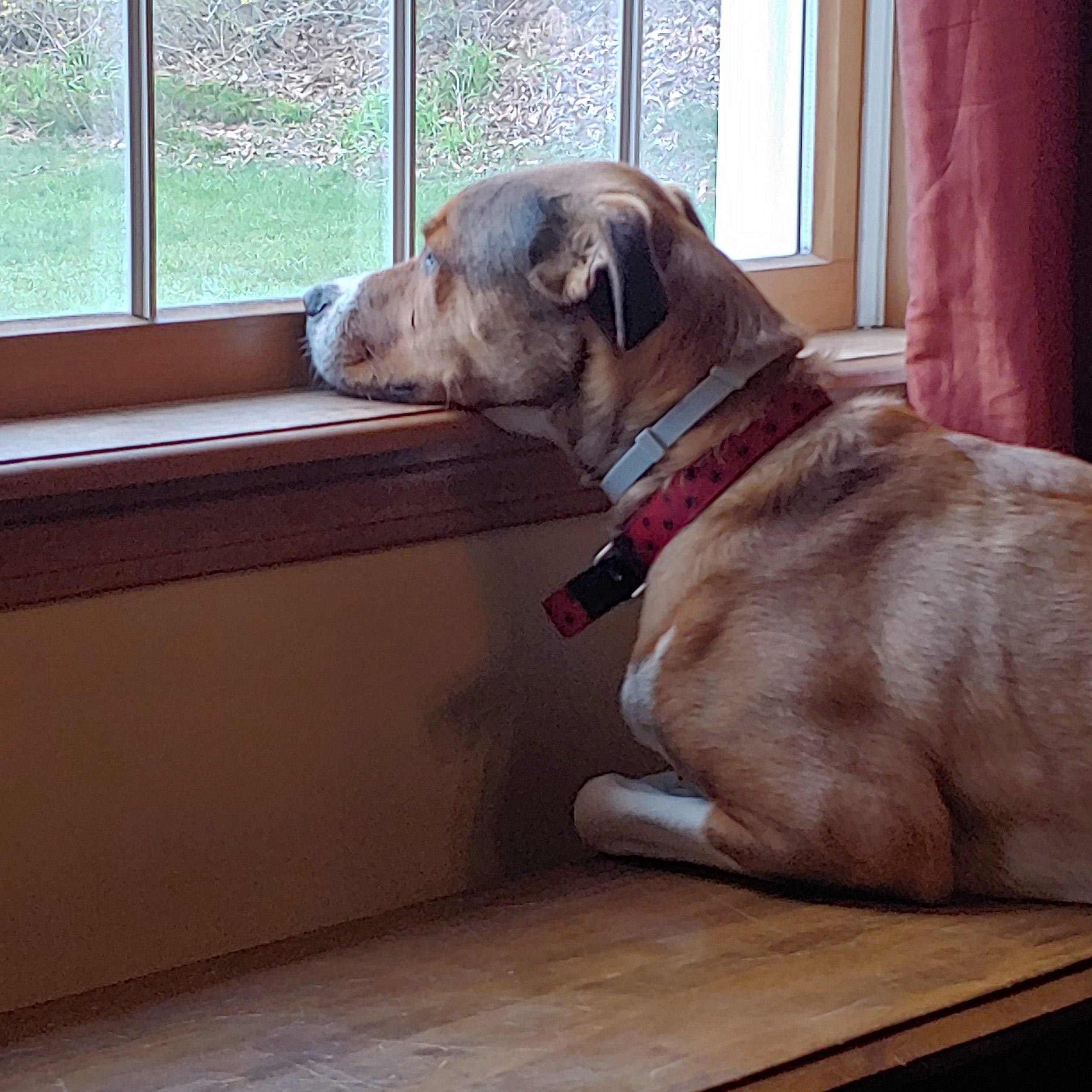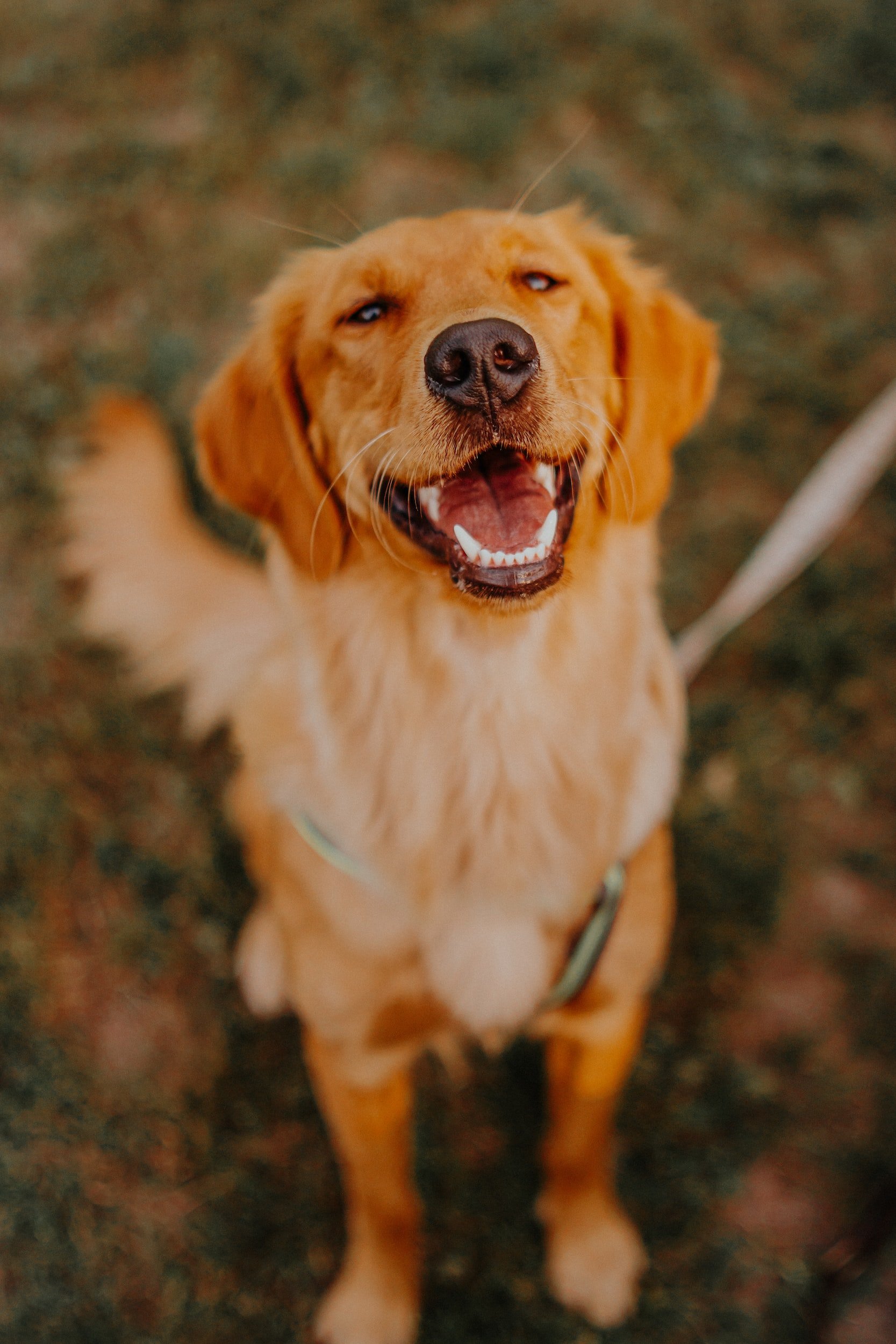Why do dogs howl?
Howling is one of many forms of communication by dogs. Dogs howl for many reasons including medical issues, separation anxiety, in response to sounds, to seek attention, to warn others of danger, excitement or a form of communication with other dogs. Since dogs are part of the family, it’s important to understand what they are trying to communicate when they howl, so you can respond to them appropriately.
Medical issues
Some dogs howl when they are in pain or unwell. If your dog is normally quiet and starts howling, they may be vocalising their discomfort. It’s always important to get a vet’s opinion to rule out any medical issues before you do anything else.
Separation anxiety
If your dog suffers from separation anxiety they may howl, bark or whine when you leave them home alone. This type of vocalisation can often be accompanied with other symptoms such as pacing, trying to escape, destructive behaviour, indoor accidents despite being house trained, drooling, panting or salivating more than usual.
There are many steps you can take to help your pet through separation anxiety and learn that being alone is ok. To find out more, read our blog post 5 tips to help your pet through separation anxiety.
In response to sounds
Certains sounds can act as triggers and cause your dog to howl. Many dogs can be stimulated by high pitched sounds such as sirens, music or other dogs in the neighborhood howling. Howling is simply your dogs way of acknowledging the sound and responding or joining in with the action. If your dogs howling is trigged by sound, they normally stop when the sound stops. This type of howling isn’t normally a problem unless the trigger occurs frequently or you are getting complaints from your neighbours. In these cases, you can get in touch with your local veterinarian or a behavioural professional for help to deter the behaviour moving forward.
Attention seeking
Some dogs learn to howl to get attention, food or desired objects from you or others.
If this is causing frustration, you need to teach your dog that howling no longer works. Rather, if they are quiet, they will get what they want. If your dog starts howling for your attention, you can turn away from your dog or even walk out of the room. As soon as they stop howling, ask them to sit and offer them a reward. By ignoring their howling behaviour and rewarding them when they are quiet and seeking attention, they will soon learn they can still get what they want, without vocalising.
To alert their owner to danger
Some dogs howl or bark to protect their home from intruders. Howling can be a way to signal to dogs, potential visitors and other animals that this area is already claimed and they are not welcome. This is often the case if you hear your dog howl at strangers, dogs or other animals walking near your house.
This is generally only a problem when they start howling or excessively defending their home when you have welcome visitors arriving. If this is the case, you can work on steps to correct their behaviour. Read our article How to stop nuisance barking.
Communicate with other dogs
Howling is an important form of communication from your dog, not just to humans but to other dogs too. If your dog can hear other dogs nearby, they may howl to talk to them. Howling can let other dogs know that your dog is near, they are listening and they are in charge of their territory.
If this becomes a problem you can bring them indoors when other dogs are barking. You can also distract them with treats or playtime when they start howling at other dogs. Or you can teach your dog the quiet command. When your dog starts howling use a calm, firm voice to tell your dog to be “quiet”. Wait until they stop howling, even if its just to take a breath, then praise them and give them a treat.
Frustration or excitement
Dogs can howl when they are placed in frustrating situations such as when they are confined or tied up or when see other children or dogs in the street and want to play but can’t.
Some dogs can get so excited that they start howling. This is often accompanied with other signals such as happy barking, wiggling their body or jumping around. This type of howling generally doesn’t last very long. If you notice your dog howling when you get home from work, are preparing their meal or are about to take them on a walk, then it is most likely linked to excitement.
To correct frustration or excitement howling, make sure your backyard is safe and provides suitable shelter and plenty of fresh water. If your dog is tied up, consider switching to keep them loose in a fenced area. You can train your dog to control their impulses by teaching them to sit, wait and stay before going on walks, feeding or playtime. You can also bring them indoors when other dogs or children are playing outside.
Your dog’s howling is one of many forms of communication. It can be helpful in certain situations and other times frustrating. If your dog is nuisance howling and you are having difficulty correcting their behaviour, get in touch with your local veterinarian or a behavioural professional.



